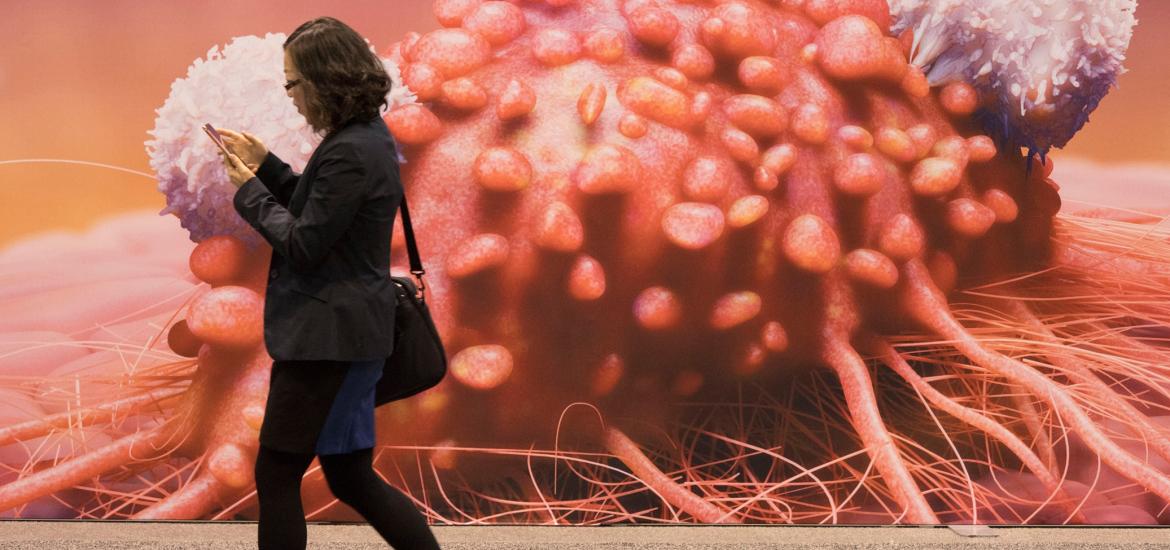
AACR 2024 preview – Lag3, TIGIT and more
BeiGene has a strong presence at this year’s AACR, which features several notable duels.
BeiGene has a strong presence at this year’s AACR, which features several notable duels.

Investors focused on novel immuno-oncology mechanisms on display at the upcoming AACR meeting might be drawn to clinical posters covering BeiGene’s anti-Lag3 MAb LBL-007. This is a somewhat under-the-radar asset in a space where Bristol Myers Squibb’s Opdualag, Merck & Co’s favezelimab and Regeneron’s fianlimab have seized the limelight.
BeiGene’s anti-TIGIT MAb ociperlimab, last year abandoned by Novartis, also features in a clinical presentation, though that trial is likely to have failed. Despite such setbacks TIGIT blockade continues to generate intriguing if equivocal results, so investors might also note clinical data from dargistotug, a virtually unknown anti-TIGIT MAb from Merck KGaA.
There are doubts about dargistotug too, and its AACR clinical poster includes a combo with bintrafusp alfa, a PD-L1-targeting bifunctional fusion protein that crashed out of a Merck KGaA deal with GSK.
BeiGenes’s ociperlimab poster concerns the Advantig-204 study in a first-line SCLC combo with tislelizumab versus tislelizumab alone. This trial ended in mid-2023 at around the time Novartis pulled out, and BeiGene has revealed no data yet. Also in first-line SCLC Roche’s anti-TIGIT tiragolumab flunked the Skyscraper-02 trial.
In Lag3 blockade BeiGene has clinical posters featuring LBL-007 in colorectal cancer (tislelizumab combo) and first-line oesophageal squamous cell carcinoma (tislelizumab plus chemo combo). For now only the AACR abstract titles are known, with all sessions containing clinical data remaining under wraps until 5 April.
Selected ACCR 2024 presentations
| Project | Company | Mechanism | Focus | Abstract |
|---|---|---|---|---|
| BMS-986218 | Bristol Myers Squibb | Anti-CTLA-4 MAb | Prostate cancer, clinical poster | CT137 |
| IMM27M | ImmuneOnco | Anti-CTLA-4 MAb | Solid tumours | CT09 |
| NGM707 | NGM Biopharmaceuticals | Anti-ILT2/ILT4 MAb | Solid tumours, Keytruda combo | CT099 |
| MK-4830 | Merck & Co | Anti-ILT4 MAb | Solid tumours, Keytruda combo | CT104 |
| GCC19CART | Innovative Cellular | Anti-GUCY2C Car-T | Colorectal cancer | CT129 |
| HDP-104 | Heidelberg Pharma | Anti-GUCY2C ADC | Late-breaking preclinical poster | LB059 |
| Dargistotug/ M6223 | Merck KGaA | Anti-TIGIT MAb | Solid tumours, +/- bintrafusp | CT184 |
| Ociperlimab | BeiGene | Anti-TIGIT MAb | Advantig-204, tislelizumab combo in 1L SCLC | CT255 |
| LBL-007 + tis | BeiGene | Anti-LAG3 MAb | Ph1/2 Liberty-201 tislelizumab combo in colorectal | CT276 |
| BGB‑10188 | BeiGene | PI3Kδ inhibitor | Solid tumours | CT189 |
| FPI-2265 | Fusion Pharmaceuticals | Ac-225 labelled anti-PSMA | Tatcist trial, mCRPC | CT224 |
| S095018/ Sym023 | Servier (ex Symphogen) | Anti-Tim3 MAb | Biliary tract, Sym021 (PD-1) combo | CT133 |
| NaPi2b-PL2202 | ADC Therapeutics | Anti-NaPi2b ADC | Preclinical | 5085 |
Source: AACR.
Additional IO mechanisms of note at AACR include CTLA-4 blockade, with clinical data from ImmuneOnco’s IMM27M and Bristol Myers Squibb’s Yervoy follow-on BMS-986218. The latter is separate from the afucosylated MAb BMS-986288, the subject of a tie-up with CytomX.
Other duelling mechanisms will see data on MAbs against ILT4 from NGM’s NGM707 and Merck & Co’s MK-4830; this space is relevant for followers of Coherus, which has the anti-ILT4 MAb CHS-1000 in preclinical trials. And GUCY2C, a target that showed early promise at last year’s ESMO, will see data on Innovative Cellular’s GCC19CART, and on HDP-104, a new preclinical ADC from Heidelberg Pharma.
With radiopharmaceuticals in the deal-making frame attention could be drawn to Fusion’s actinium-225 labelled anti-PSMA project FPI-2265. And Tim-3 blockade remains in play for GSK, whose cobolimab faces a major phase 3 catalyst this year; Novartis recently abandoned this space, but Servier appears to be continuing with S095018, which has secured an AACR clinical poster.
Finally, ADC Therapeutics might ring some bells with a preclinical poster on NaPi2b-PL2202, a recently disclosed camptothecin-based ADC against NaPi2b-expressing solid tumours. This target has a limited industry focus, and the most prominent asset was Mersana’s ADC upifitamab rilsodotin, until that was scuppered by toxicity.
Mersana turned to a follow-on, XMT-1592, but this too was toxic (phase 1 data featured at this week’s European Society of Gynaecological Oncology congress), and ended up being discontinued. Roche also canned lifastuzumab vedotin, and one of the few remaining players is Zymeworks’ preclinical ZW220.
The 2024 AACR meeting takes place in San Diego on 5-10 April. ApexOnco earlier previewed the meeting’s key clinical sessions, as well as preclinical projects and cancer immunotherapies.
2979













